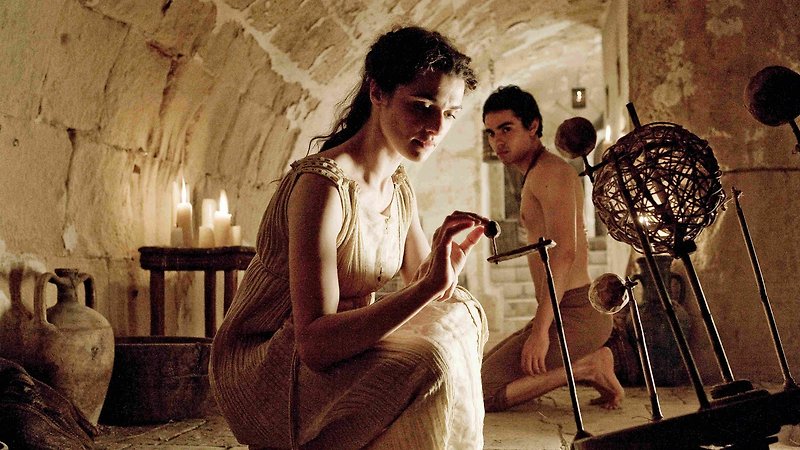“Agora” is a 2009 historical drama film directed by Alejandro Amenábar. The movie takes place in 4th century Roman Egypt and tells the story of Hypatia, a philosopher and astronomer who faces religious unrest and turmoil during the rise of Christianity.
Set in the city of Alexandria, “Agora” explores themes of science, religion, and power. Hypatia, played by Academy Award-winning actress Rachel Weisz, is a prominent figure in the Library of Alexandria, where she teaches philosophy and conducts scientific research. As the city becomes engulfed in religious conflict between Christians and pagans, Hypatia finds herself caught in the middle of opposing forces.

The film showcases the intellectual pursuits of Hypatia and her dedication to knowledge amidst the growing religious tensions. Despite her groundbreaking discoveries and teachings, she faces discrimination and persecution due to her gender and beliefs. Hypatia’s commitment to truth and reason in the face of ignorance and superstition highlights the challenges of pursuing enlightenment in a time of darkness.
Amenábar’s direction and storytelling bring to life the richness of the ancient world and the struggles faced by those who dared to question the status quo. The cinematography captures the grandeur of Alexandria and the complexities of its society, providing a visually stunning backdrop to the unfolding drama.

Through “Agora,” viewers are invited to reflect on the importance of intellectual freedom, cultural tolerance, and the timeless quest for knowledge. The film serves as a reminder of the power of ideas to shape history and the bravery of those who choose to defy orthodoxy in pursuit of truth.
Overall, “Agora” is a thought-provoking and visually captivating film that offers a glimpse into a turbulent period in history. With its stellar performances, compelling narrative, and thematic depth, it stands as a testament to the enduring relevance of the past in shaping the present.